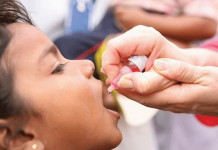By Hina Kiyani
The dairy sector around the world is starting to feel the pinch from the coronavirus. The world’s top dairy exporters are expecting a significant supply disruption as importing countries – like China, Germany, Netherland, Italy, France, UAE, Malaysia, Singapore –continue to see spike in the number of coronavirus cases.
At home however, the threat is of a completely different scale and nature. Pakistan’s dairy sector is highly unorganized and unregulated where raw and loose milk accounts for over 90 percent of the total milk sold. Benefitting from falling global milk prices is out of the question as domestic milk prices seldom follow international prices because the processed milk sector accounts for only 5 percent of the market. Likewise, despite being among the world top milk producers, Pakistan is not a significant dairy exporter.
But lower global exposure doesn’t mean that the country’s dairy sector will not witness the fallout from the deadly virus. Dairy comprises around 11 percent of the GDP. In case of exponential growth in coronavirus cases, the country’s loose milk supply chain may face disruptions, as might the supply of fruits and vegetables to urban area
Dairy farming is highly inefficient due to lack of scale and investment, while the outdated supply chain of milk relies on hundreds of thousands of people distributing milk in most often poor hygiene conditions, requiring far more number of people in distribution than pasteurised or UHT milk might require
By one industry estimate, about 100,000 people deliver milk to millions of households in the country, whereas dairy parlors are also poorly regulated and crowded places as are sabzi mandis and fish markets. Closing them down risks supply chain disruptions; yet if one doesn’t close them down then there is an inherent risk of person to person contract spreading the virus across both ends of the supply chain.
Considering that milk is a perishable item, the downfall of the unregulated market will lead to increase in wastage, which is already high in Pakistan estimated at around 15 percent. Amid rising Coronavirus cases, the Punjab Food Authority (PFA) has discarded at least 5000 litres of adulterated milk in March only.
Unless the government can come up a solution to properly regulate milk and sabzi mandis and ensure social distancing in the wake of corona without disrupting supply chain, facilitating packaged foods and packaged milk industry seems to be the only option to help towards smooth food and dairy supplies. In the case of milk, one must bear in mind that as springs ends and summer begins milk supply will enter a lean period. BR Research channel checks suggest that local market players in the regulated milk sector have the technology and the capacity to increase production.
While in the long run it is up to the people (consumers) to decide whether they prefer fresh & chilled, pasteurised or UHT milk, the government must treat all segments equally. That and the fact that this pandemic is a threat to loose milk dairy supply chain, the government should do away with sales tax (at import stage) on the critical inputs such as dry milk powder needed for the packaged dairy sector since those taxes further increase in price differential with loose milk. However, fairness demands that loose milk sector should also have similar exemptions on account of the fact that milk is used as a key nutrient provider in Pakistan.
Around the world, many milk producing countries are trying to streamline their milk processes and ramp up production of packaged milk particularly UHT milk that has longer shelf life, can be stored, and has little human intervention in the production process to address issues like shortages amid panic buying and inevitable human interaction in the raw milk distribution. As the matter stands now, dairy supplies are met.
But corona is here to stay. Best to give incentives to the industry and create a level playing today, to be able to ensure milk supplies when the going really gets tough.




